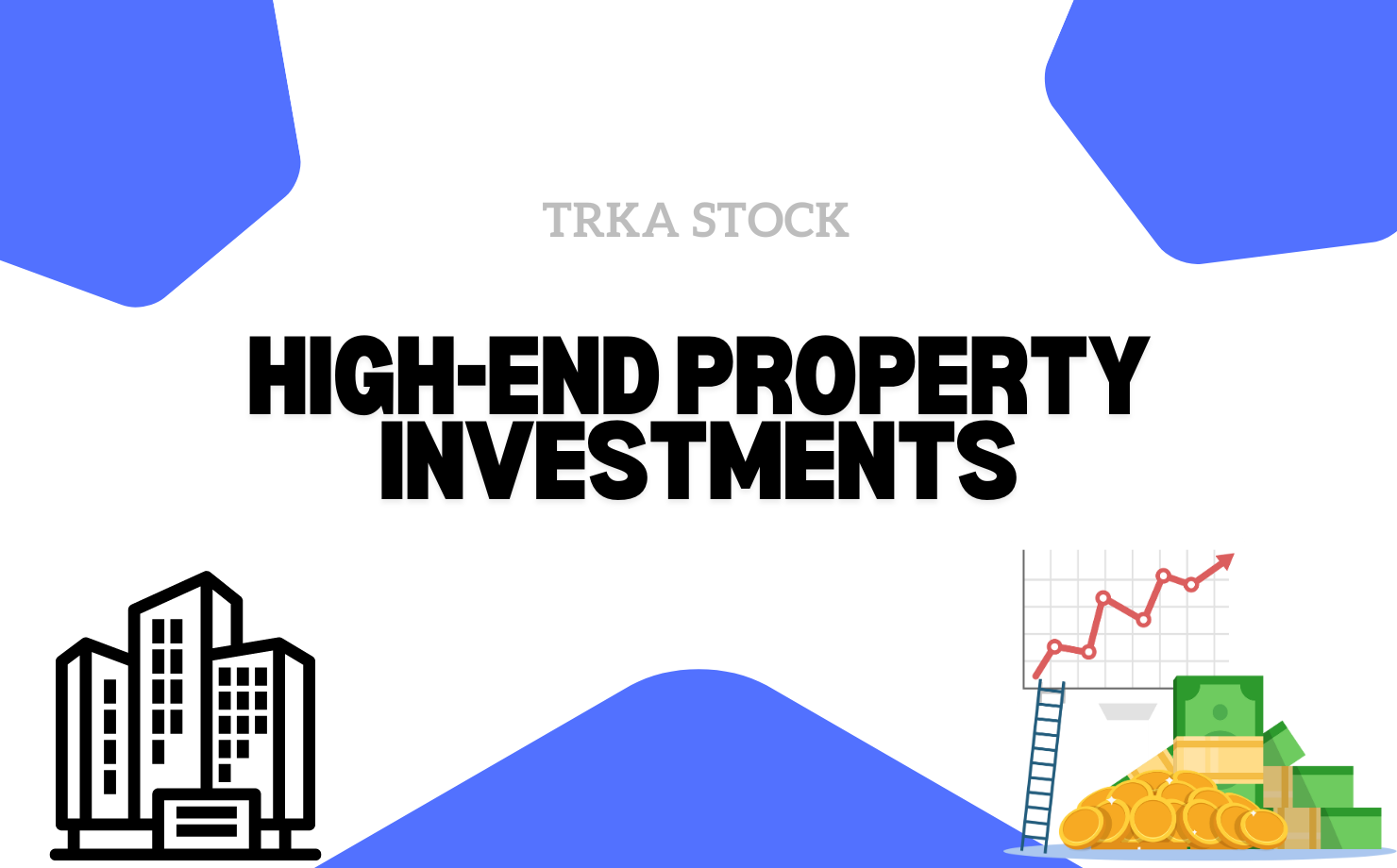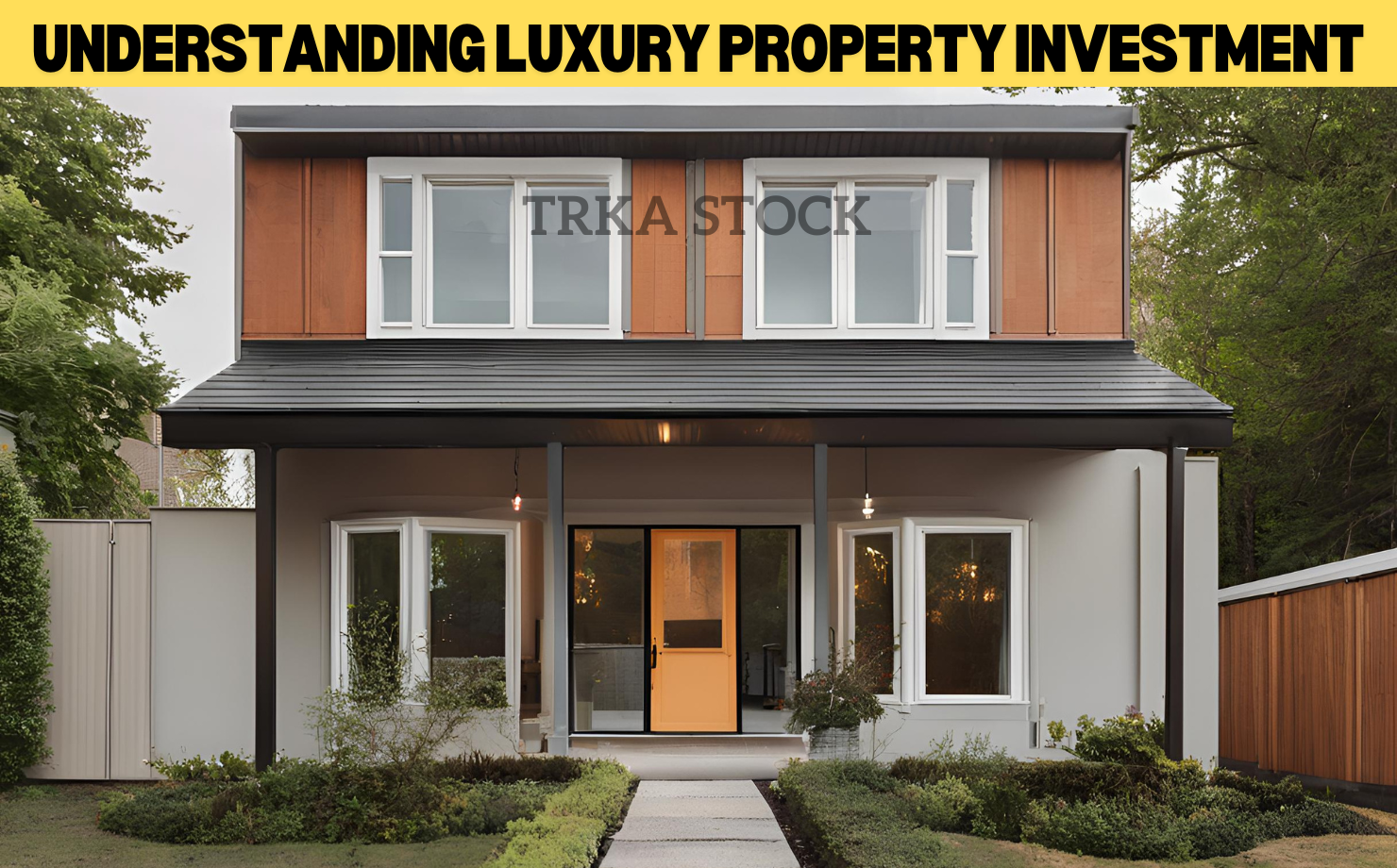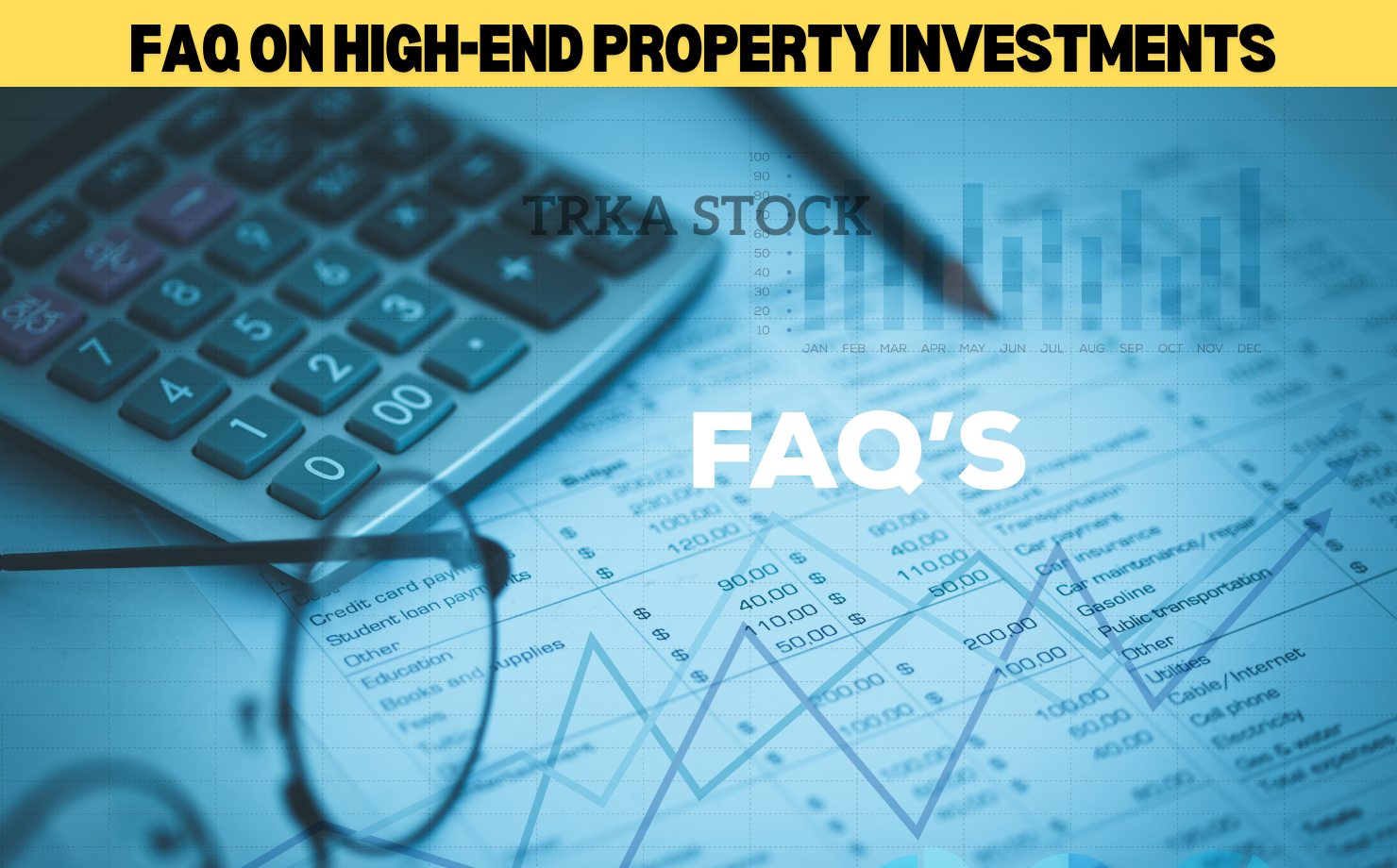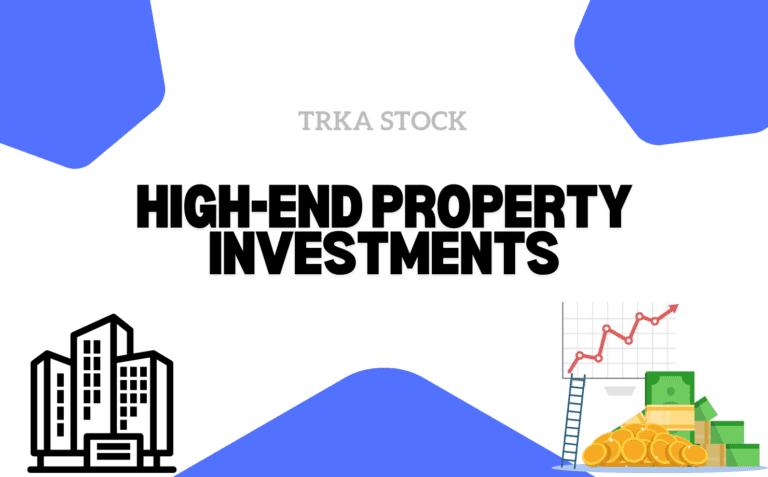Summary – High-End Property Investments
Explore how high-end property investments provide a lucrative way to diversify portfolios. Luxury real estate offers exceptional returns, market stability, and access to exclusive assets. From residential estates to commercial ventures, discover why high-net-worth individuals choose luxury properties for sustainable growth and wealth building.
Luxury Property Investment: A Gateway to Diversified Portfolios
Investing in luxury real estate offers an excellent opportunity to diversify your portfolio, with the potential to generate additional income and build long-term wealth for you and your loved ones. High-end property investments provide access to an exclusive market that can significantly enhance your financial portfolio.
Before diving in, it’s important to understand the advantages and challenges associated with luxury real estate. This includes exploring the various types and characteristics of luxury properties and the broader real estate market context. Additionally, consider luxury property funds, which provide a lower entry point for investors eager to enjoy the benefits of high-end property investments without the steep price tag.
This high-end market offers substantial benefits to those who take a strategic approach. In this article, we’ll explore luxury property investments as a pathway to portfolio diversification.

Understanding Luxury Property Investments
So, what exactly is luxury property investment? It’s not simply defined by a high price tag, although luxury real estate typically comes with a higher cost. What sets these properties apart are coveted features like cutting-edge technology, unique designs, opulent architecture, top-tier amenities, exclusive locations, or significant historical value. In the commercial sector, this might include high-end hotels, retail spaces, or office buildings that outshine typical properties, making them desirable to affluent buyers.
Luxury properties also tend to attract higher price tags than regular real estate. For example, a luxury property in London could cost upwards of £2.5 million. However, luxury rental apartments in new developments often come with a lower price, making this sector more accessible for savvy investors. Generally, high-net-worth individuals (HNWI) dominate the luxury real estate market, leveraging high rental income, capital appreciation, and market stability to diversify their portfolios, particularly during economic instability.
Traditional vs. Luxury Real Estate Investments
Luxury real estate differs from regular real estate in several key ways:
- Investor demographics: Regular real estate investors come from various socioeconomic backgrounds. Luxury property investors, on the other hand, are typically HNWIs seeking aspirational assets.
- Market dynamics: While regular property markets are subject to economic fluctuations, luxury real estate is more insulated due to the financial stability of HNWI investors.
- Economic impact: High-end property investments can transform urban landscapes, attracting luxury retail, cultural, and dining experiences, whereas regular properties support affordable housing and social diversity.
- Globalization: HNWIs are drawn to high-end property investments in major global cities, looking for stability, diversification, and high returns, while regular properties are often tied to local economies.
high-end property investments (Table)
| Category | Luxury Real Estate | Traditional Real Estate |
|---|---|---|
| Investor Profile | HNWI seeking portfolio diversification and high-end property investments. | Broader range, including first-time buyers and affordable housing investors. |
| Market Dynamics | Less impacted by economic shifts due to HNWI stability. | Influenced by job markets, interest rates, and demographics. |
| Globalization | Attracts international investors seeking stability and returns. | More tied to regional economies, focused on local buyers. |
| Returns | High potential for rental income and capital appreciation. | More modest returns, influenced by market conditions. |
| Risks | High entry costs, complex management, potential illiquidity. | Lower entry costs, but more exposed to market fluctuations. |
Market Trends in Luxury Property Investments
The global luxury real estate market is set to grow by 6.8% annually between 2024 and 2031, despite economic challenges like high mortgage rates and a cost-of-living crisis. Why? HNWI investors are less vulnerable to these financial challenges and can often make cash purchases or weather rate rises. In fact, many luxury consumers view 2024 as an excellent time to invest in real estate.
Several trends dominate the luxury property market:
- Investors are increasingly focused on sustainable, green properties that utilize renewable energy and innovative materials.
- Smart technology, like advanced security systems and lighting, is a must-have for modern luxury properties.
- Wellness and fitness amenities are in high demand, especially following the pandemic.
- The rise of digital nomadism has driven interest in luxury properties located outside urban centers, particularly those offering outdoor spaces and activities.
Types of Luxury Property Investments
There are various ways to enter the luxury real estate market, including:
- Residential luxury properties: From sprawling chateaux to prime city apartments, these properties offer diverse investment options.
- High-end apartments: Often found in urban hubs, luxury apartments range from penthouses with panoramic views to compact units with high-end finishes.
- Luxury flip projects: Some investors buy luxury properties to renovate and resell quickly for profit, capitalizing on market trends.
- Luxury commercial properties: Investing in high-end retail spaces, boutique hotels, and office buildings offers the potential for long-term leases and high rental returns.
- Luxury property funds: For those seeking high-end property investments without the upfront cost, funds like real estate investment trusts (REITs) offer a way to access the luxury market.
high-end property investments

Understanding Luxury Property Investment
Luxury real estate investment involves acquiring, managing, and potentially renting or selling high-end properties characterized by superior quality, prime locations, and exclusive amenities. These properties can include lavish homes, penthouses, upscale commercial spaces, and mixed-use developments. The investment is not solely defined by price; rather, it encompasses unique features such as high-end technology, opulent architecture, and exclusive surroundings.
Key Characteristics
- High-End Features: Luxury properties often boast superior construction quality and high-end specifications.
- Exclusive Locations: Properties are typically situated in desirable areas, enhancing their appeal and value.
- Investment Potential: Luxury real estate tends to appreciate at a higher rate than average properties, providing substantial long-term financial stability and growth opportunities.
Benefits of Investing in Luxury Real Estate
- Higher Returns: Luxury properties generally offer higher returns compared to traditional real estate due to consistent demand from high-net-worth individuals (HNWIs) looking for prestige and comfort.
- Stable Income Stream: Investing in luxury rental properties can yield significant rental income, making it a viable option for generating passive income.
- Portfolio Diversification: Including luxury real estate in an investment portfolio can help mitigate risks associated with market volatility, particularly during economic downturns.
- Prestige and Exclusivity: Ownership of luxury properties often comes with a sense of prestige, appealing to affluent buyers.
Current Market Trends
The luxury real estate market is evolving, influenced by economic conditions, technological advancements, and changing consumer preferences. Notable trends include:
- Sustainability Features: There is a growing demand for properties that incorporate eco-friendly designs and sustainable building practices.
- Smart Home Technologies: High-end buyers are increasingly seeking homes equipped with the latest smart technologies, enhancing convenience and security.
- Unique Experiences: Buyers are gravitating towards personalized and unique properties that cater to their lifestyle needs, moving away from cookie-cutter developments.
Investment Strategies
Investors can approach luxury real estate through various strategies:
- Flipping Properties: Acquiring and renovating luxury homes can yield high returns, especially if the properties are well-maintained and located in desirable areas.
- International Investments: Investing in luxury properties abroad can offer unique benefits, such as favorable tax conditions in certain regions, though it may involve additional complexities.
- Custom Builds: Building a luxury home tailored to current market demands can maximize investment returns, provided the design appeals to a broad segment of luxury buyers.
Strategic Advantages of High-End Property Investments
Luxury property investments offer several strategic benefits, including:
- Potential for high returns: High rental yields and capital appreciation are common in the luxury market.
- Portfolio diversification: Luxury real estate typically has low volatility, allowing you to stabilize and diversify your assets.
- Access to exclusive markets: The luxury sector tends to be more stable than the broader property market, reducing risk.
- Hedge against inflation: As the economy grows, demand for luxury properties rises, driving up rents and property values.
- Leverage: Investors can use debt to finance luxury property purchases, allowing them to control valuable assets with only partial ownership.
Navigating the Risks of High-End Property Investments
While luxury real estate has many advantages, there are some risks to consider:
- High entry costs: Even for HNWIs, purchasing luxury properties can be expensive. Investment funds offer a more accessible alternative.
- Market volatility: While generally stable, the luxury real estate market can experience fluctuations, although properties often retain their value during downturns.
- Management challenges: Managing luxury properties for rental income and capital appreciation can be complex and may require professional assistance.
- Liquidity issues: Real estate investments are less liquid than other assets, but thorough research can help investors choose properties with strong market potential.
Your Pathway to High-End Property Investments
High-end property investments combine exclusivity and opulence, offering an exciting opportunity for portfolio diversification. At Hays Mews Capital, we specialize in helping high-net-worth individuals access the best fixed-income opportunities across multiple asset classes, including luxury real estate. Through our expertise, we guide investors toward lucrative opportunities in the luxury market.


